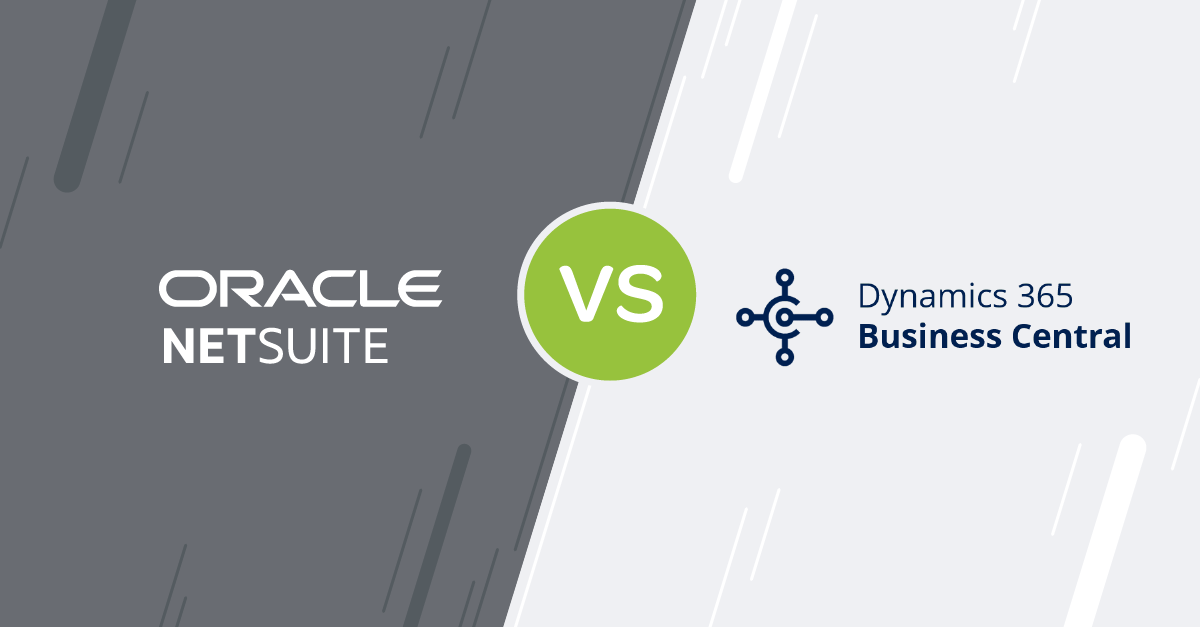Blog
Share this
What’s Included in Your NetSuite Total Cost of Ownership?

by Jalene Ippolito on May 13, 2021
Cloud ERP solutions – like NetSuite – have risen in popularity as cost-effective options for growing small and mid-size businesses. Eliminating the hardware and ongoing infrastructure costs of an on-premise system has made ERP more accessible to smaller organizations. Rather than an up-front capital investment, the cost is spread out over many years using a SaaS (subscription as a service) model. All of this is very appealing to SMEs, but before they make the leap, they want to know – What’s this ERP system going to cost in total?
That’s what we’ll dig into here – all the initial and ongoing costs that factor into the total cost of ownership (TCO) for your NetSuite system.
NetSuite software recurring cost
As NetSuite is a SaaS (software-as-a-service) solution, you’ll have ongoing subscription fees for the software. This means you’ll pay a monthly fee for each user. The cost of your NetSuite subscription fee depends on a few factors:
- The NetSuite edition you use (based on company size)
- The type of user license (Full or Self-service)
- The functional modules you use
The big benefit of a SaaS cloud ERP, like NetSuite, is that you don’t have to take on the infrastructure costs. According to a TCO study by Hurwitz & Associates, IT infrastructure costs account for about 11% of the total cost for an on-premise ERP solution. There’s no equivalent cost for NetSuite – hardware, system software and ongoing maintenance is all included in your subscription.
Have questions about NetSuite?
Let’s chat. We’ll answer your questions, clear up the confusion, and help you figure out if NetSuite is the right fit.
Consulting costs
Implementation
The initial implementation cost for a NetSuite system can vary. The size and complexity of your company can impact requirements and scope. Customizing system functionality or integrating with outside systems can also affect cost. Generally speaking, a SuiteSuccess implementation will keep the costs down. It’s a more prescriptive implementation approach that leverages best practices, pre-defined workflows, reports, etc. to get you live with NetSuite faster and at a lower cost. We recommend working closely with your NetSuite implementation partner to properly scope your project.
Customization
NetSuite does a lot out-of-the-box. But there are cases where customizing the solution is necessary to fit your needs. Keep in mind that you’re changing what the system does and customization adds cost. As a rule of thumb, you should only customize when absolutely necessary. A qualified NetSuite partner (like ProjectLine) can help you determine when to customize and provide a quote based on your requirements.
Integration
While NetSuite will address the bulk of your core business needs, you may want to keep certain specialty applications or take a best-of-breed approach. This has become the norm for many companies. The key is creating seamless integrations with external systems that create a cohesive solution.
Ongoing support
All NetSuite customers have access to basic support as part of their subscription. But you also have the option to upgrade to premium support packages either through NetSuite or your NetSuite partner. We recommend using your NetSuite partner as your first line of defense for support. They’re familiar with your implementation, understand your business and already know your team.
Upgrades
One of the great things about NetSuite is that you’re always on the latest version. You’ll be notified of the maintenance window ahead of time and the new features, bug fixes, etc. will be rolled out in your system automatically. There’s no effort or extra cost on your end. The only caveat is if you have integrations that need to be tested or updated alongside the upgrade. You would work with your partner to determine scope and cost of any consulting work.
People costs
Initial implementation
Many companies under-estimate the time required to implement an ERP system. But it’s an important financial figure to consider in your total cost of ownership. Consider each resource on your team, how much time they dedicate to the implementation project and the value of their time. Track all relevant time including project meetings, data cleaning, testing, training and go-live activities. Also factor in any salary costs for new resources you hire to backfill individuals that are dedicated to the project.
Ongoing training time
Once you go-live with your NetSuite system, you can count on additional training activities as your team adjusts to the software and new processes. Over time, you’ll have ongoing training costs as you add new functionality or hire more staff. Whether your team is watching online videos or participating in a dedicated training session with your partner, make sure you track this time so you can understand the cost of your training activities.
Process optimization
We’re big advocates for continuous improvement. One of the primary drivers for ERP is to improve processes. But the work isn’t done once NetSuite is implemented. You’ll see the greatest value of your NetSuite system with a continuous improvement plan. This will help you prioritize and plan future implementation of new functionality and process changes. Like your training activities, ensure you have a way to track the time spent on these initiatives so you can assign an accurate cost.
Final thoughts…
You’ll notice we haven’t assigned numbers to any of the items in this post. That’s because the cost is variable. Every implementation is different and your TCO won’t be the same as another company’s. What the research says is that NetSuite’s overall total cost of ownership is 55% lower than comparable on-premise solutions for 52 users, over a 4-year term. Our goal here is to give you a guide so you can capture the relevant costs that factor into your calculations.
Share this
Stay in the Know!
Join other SMEs who receive our monthly ERP insights, tips and best practices.
You may also like

ERP Funding for Canadian Businesses

Should You Work with a NetSuite Implementation Partner or Go Direct?



